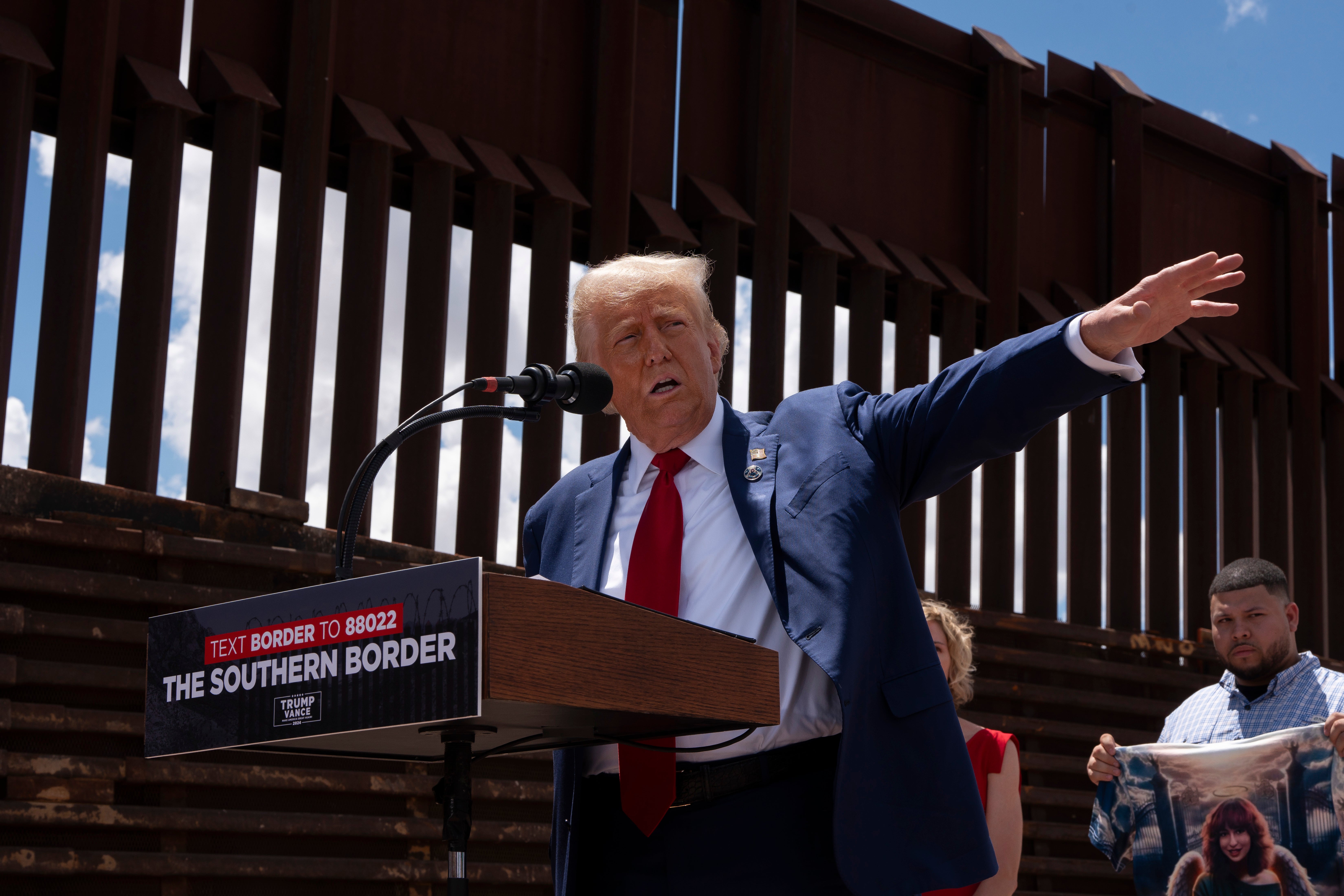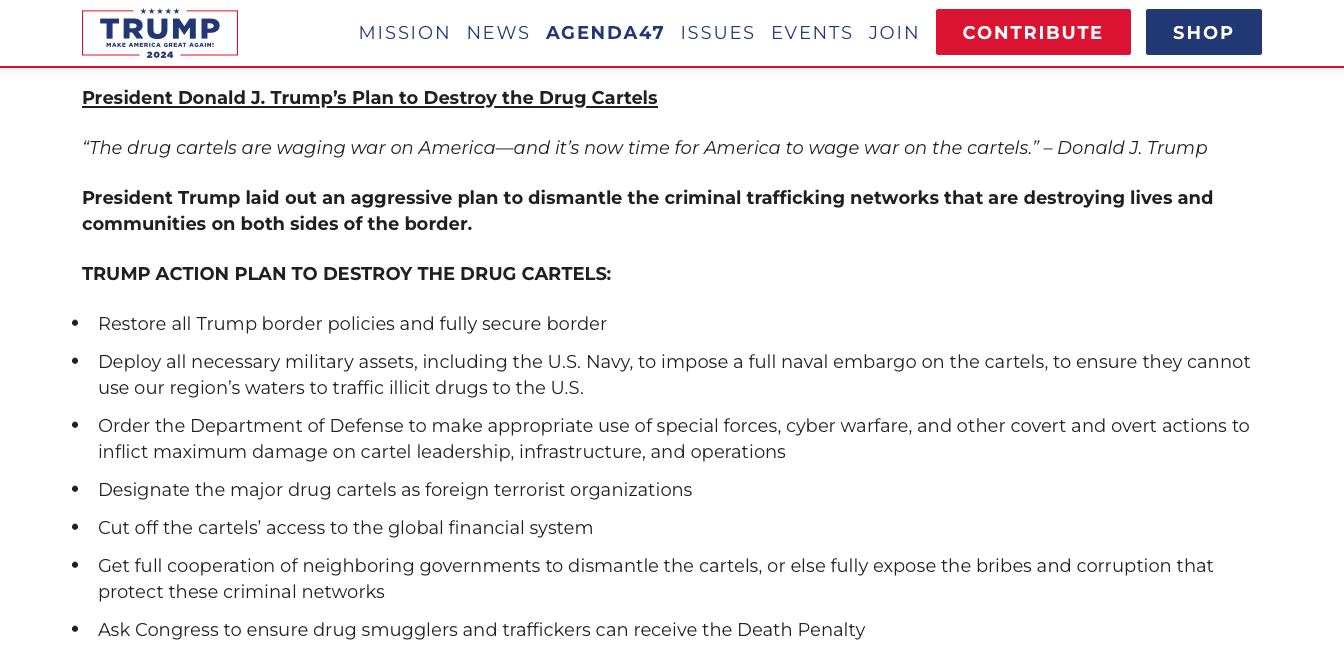Experts warn Trump’s plan to name cartels ‘terrorists’ could open door to military operations in Mexico
President-elect’s latest suggestion threatens to escalate tensions between the U.S. and Mexico
Your support helps us to tell the story
From reproductive rights to climate change to Big Tech, The Independent is on the ground when the story is developing. Whether it's investigating the financials of Elon Musk's pro-Trump PAC or producing our latest documentary, 'The A Word', which shines a light on the American women fighting for reproductive rights, we know how important it is to parse out the facts from the messaging.
At such a critical moment in US history, we need reporters on the ground. Your donation allows us to keep sending journalists to speak to both sides of the story.
The Independent is trusted by Americans across the entire political spectrum. And unlike many other quality news outlets, we choose not to lock Americans out of our reporting and analysis with paywalls. We believe quality journalism should be available to everyone, paid for by those who can afford it.
Your support makes all the difference.Donald Trump’s plan to designate Mexican drug cartels as “foreign terrorist organizations” could provide the legal framework to allow the U.S. to conduct military operations in Mexico, according to experts.
For years, the President-elect has threatened to designate cartels that traffic illicit drugs into the U.S. foreign terrorist organizations. That distinction would allow the government to place additional economic and social sanctions on them.
Doing so also bolsters the president’s authority to carry out military operations on those involved with a terrorist organization, including foreign states suspected of supporting such organizations. The president can also preemptively deploy military force against terrorist organizations.
Undoubtedly, such action would strain the U.S.–Mexico relationship by increasing hostility. Former Mexican ambassador to the U.S., Gerónimo Gutiérrez told El País it would “set the relationship… back three decades.”

In 2019, Trump nearly designated Mexican drug cartels as “terrorists” but backed out after compromising with Mexico.
However, earlier this month, the president-elect pitched the idea again, this time at a conference for Turning Point USA in Arizona.
"I will immediately designate the cartels as foreign terrorist organizations," Trump said. “We’re going to do it immediately and unleash the full power of federal law enforcement, ICE, border patrol.”
Trump campaigned aggressively on combating illegal immigration and drug trafficking, specifically related to fentanyl. He is holding Mexico accountable in the efforts to stop drug influx into the U.S., already promising to enact a 25 percent tariff on Mexican imported goods – despite the country being one of the U.S.’s largest trading partners.
But designating cartels as “terrorists” would be one step further.
“Designating cartels as terrorist organizations would be a strategic error with unpredictable consequences for both countries,” a senior official at the Mexican Embassy told El País.

The purpose of designating an organization as a terrorist organization is primarily to stop the flow of money and allow federal prosecutors to pursue criminal penalties against cartel members and allies. It also provides legal backing for the president to carry out military operations – specifically under the Authorization for Use of Military Force of 2001 Act.
The broad act supports the president conducting operations against individuals and organizations linked to those who conducted the September 11 attacks. However, it has been widely interpreted to be applied to other terrorist groups.
For example, under the act, the Biden administration carried out airstrikes in Somalia as part of an effort to defeat Al-Shabaab, a terrorist group.
It does not permit the president to invade or declare war on a country without the approval of Congress.
The senior official at the Mexican Embassy said Trump’s idea “mixes concepts that respond to different dynamics.”
“Organized crime seeks profit, not ideology, and treating it as terrorism only diverts resources and attention from real solutions,” the official said.
Mexican President Claudia Sheinbaum responded Sunday, elevating the need for collaboration between the two countries to fight drug trafficking.
“We collaborate, we coordinate, we work together, but we will never subordinate ourselves,” Sheinbaum said. “Mexico is a free, sovereign, independent country and we do not accept interference. It is collaboration, it is coordination, but it is not subordination. And we are going to build peace.”
Join our commenting forum
Join thought-provoking conversations, follow other Independent readers and see their replies
Comments